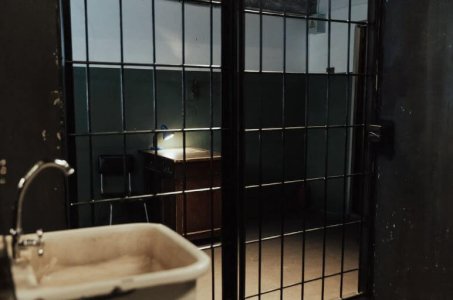Shocking update: Sydney woman's prison sentence cut after gruesomely decapitating her own mum
- Replies 19
Content warning: This article mentions gruesome descriptions of a crime scene, including decapitation, mutilation, and stabbing. Reader discretion is advised.
This is a shocking and heartbreaking update to the story of a Sydney woman who, in 2019, savagely attacked and decapitated her own mother in their home in a violent and unprovoked attack.
The woman, Jessica Camilleri, has had her prison sentence significantly reduced following an appeal she made late last year.
In the trial that ensued in 2020, the jury found Jessica guilty of manslaughter due to substantial impairment rather than murder.
The sentence was originally set at 21 years and seven months, with a mandated non-parole period of 16 years and two months.
Jessica suffers from complex mental health issues, including mild intellectual disability, autism spectrum disorder (ASD) that features a fixation on horror movies and figurines, and an intermittent explosive disorder (IED) that often leads to anger-based impulsive outbursts.
In her appeal last year, she and her team argued that the judge had erred in assessing the gravity of the crime, failed to account for her acceptance of responsibility and willingness to facilitate the administration of justice, and imposed a manifestly excessive sentence.
Two out of three Court of Criminal Appeal judges agreed with her appeal arguments and granted a sentence reduction.
Her new prison term is now set at 16 years and six months, accompanied by a non-parole period of 12 years.
Justice Peter Hamill, one of the judges overseeing the appeal, noted in his judgement that ‘objectively, the facts were gruesome and brutal and involved a frenzied attack on an innocent victim in her own home.’
He further added: ‘The mutilation of the victim's body made this homicide particularly horrendous.’
However, Justice Hamill also recognised the role of Jessica's mental health in the crime, stating that ‘the offence was spontaneous and the result of the applicant losing control of herself because of her complex psychiatric illness’.
‘Her behaviour...demonstrated the extent to which the applicant’s conduct was divorced from the real world,’ Justice Hamill continued.
‘I find (Jessica) had only a simple understanding of moral wrongfulness due to her intellectual disability and autism spectrum disorder and had lost her self-control at the time of the homicide.’
In her trial, the court heard that Jessica stabbed her mother at least 100 times using seven knives, four of which broke due to the intensity of the attack.
It was reported that prior to the killing, Jessica and her mum, Rita, got into an argument. The jury heard that Jessica decapitated her mother, took her head from the kitchen of the home, and placed it on a footpath outside. This is where she was found by authorities, who responded to an emergency call placed by the neighbours.
Meanwhile, Rita Camilleri’s body was found on the kitchen floor near her eyeballs, tongue, and the tip of her nose. She was found with more than 30 defensive wounds on each hand.
During the sentencing, another judge acknowledged the ‘tension’ between balancing the need for punishment and coming up with a sentence for a ‘significantly disabled offender’.
However, there were claims that Jessica’s disability may have been ‘to her benefit’ on the sentence, which led to many arguing against the appeal. Many supported the idea of imposing a heavier sentence for such a ‘grave’ crime despite the perpetrator being a ‘disabled offender’.
In a tragic chain of events that led to the crime, Jessica had stopped taking her prescribed mood stabilising and anti-psychotic medications in the months prior. Her mental health rapidly deteriorated, with her agitation levels escalating in the days leading up to the attack.
On the evening of the attack, it was reported that Rita became so concerned about her daughter’s illness that she thought Jessica needed to be taken to the hospital. But when she tried to call an ambulance, Jessica stopped her, and a struggle over the phone reportedly ensued.
According to a forensic psychiatrist who was assigned to help with the investigations at the time, Jessica ‘saw red’ and was in a fit of rage as she dragged her mother by her hair and down the corridor of their home.
The forensic psychiatrist also told the court that while Jessica had the capacity to tell right from wrong during the attack, her other mental health issues, such as her IED, made it difficult for her to control herself. According to the report, Jessica’s impulse control and other abilities were substantially impaired.
Jessica Camilleri will be eligible for parole in 2031.
Jessica’s case might ring a bell for some of you since it wasn’t too long ago when reports revealed that the Camilleri home was up for sale. Although the public listing raised eyebrows on social media, some admitted they were not too bothered by the history and could manage to live in the house.
You can read the rest of the story here.
 If you are struggling with your mental health or know someone who is, it is important to seek help. Please reach out to Lifeline on 13 11 14 or Beyondblue on 130 022 4636 for further information about depression, or talk to your GP, local health professional or someone you trust.
If you are struggling with your mental health or know someone who is, it is important to seek help. Please reach out to Lifeline on 13 11 14 or Beyondblue on 130 022 4636 for further information about depression, or talk to your GP, local health professional or someone you trust.
If you know of any other resources or have personally accessed support services, please do share them in the comments below.
This is a shocking and heartbreaking update to the story of a Sydney woman who, in 2019, savagely attacked and decapitated her own mother in their home in a violent and unprovoked attack.
The woman, Jessica Camilleri, has had her prison sentence significantly reduced following an appeal she made late last year.
In the trial that ensued in 2020, the jury found Jessica guilty of manslaughter due to substantial impairment rather than murder.
The sentence was originally set at 21 years and seven months, with a mandated non-parole period of 16 years and two months.
Jessica suffers from complex mental health issues, including mild intellectual disability, autism spectrum disorder (ASD) that features a fixation on horror movies and figurines, and an intermittent explosive disorder (IED) that often leads to anger-based impulsive outbursts.
In her appeal last year, she and her team argued that the judge had erred in assessing the gravity of the crime, failed to account for her acceptance of responsibility and willingness to facilitate the administration of justice, and imposed a manifestly excessive sentence.
Two out of three Court of Criminal Appeal judges agreed with her appeal arguments and granted a sentence reduction.
Her new prison term is now set at 16 years and six months, accompanied by a non-parole period of 12 years.
Justice Peter Hamill, one of the judges overseeing the appeal, noted in his judgement that ‘objectively, the facts were gruesome and brutal and involved a frenzied attack on an innocent victim in her own home.’
He further added: ‘The mutilation of the victim's body made this homicide particularly horrendous.’
However, Justice Hamill also recognised the role of Jessica's mental health in the crime, stating that ‘the offence was spontaneous and the result of the applicant losing control of herself because of her complex psychiatric illness’.
‘Her behaviour...demonstrated the extent to which the applicant’s conduct was divorced from the real world,’ Justice Hamill continued.
‘I find (Jessica) had only a simple understanding of moral wrongfulness due to her intellectual disability and autism spectrum disorder and had lost her self-control at the time of the homicide.’
In her trial, the court heard that Jessica stabbed her mother at least 100 times using seven knives, four of which broke due to the intensity of the attack.
It was reported that prior to the killing, Jessica and her mum, Rita, got into an argument. The jury heard that Jessica decapitated her mother, took her head from the kitchen of the home, and placed it on a footpath outside. This is where she was found by authorities, who responded to an emergency call placed by the neighbours.
Meanwhile, Rita Camilleri’s body was found on the kitchen floor near her eyeballs, tongue, and the tip of her nose. She was found with more than 30 defensive wounds on each hand.
During the sentencing, another judge acknowledged the ‘tension’ between balancing the need for punishment and coming up with a sentence for a ‘significantly disabled offender’.
However, there were claims that Jessica’s disability may have been ‘to her benefit’ on the sentence, which led to many arguing against the appeal. Many supported the idea of imposing a heavier sentence for such a ‘grave’ crime despite the perpetrator being a ‘disabled offender’.
In a tragic chain of events that led to the crime, Jessica had stopped taking her prescribed mood stabilising and anti-psychotic medications in the months prior. Her mental health rapidly deteriorated, with her agitation levels escalating in the days leading up to the attack.
On the evening of the attack, it was reported that Rita became so concerned about her daughter’s illness that she thought Jessica needed to be taken to the hospital. But when she tried to call an ambulance, Jessica stopped her, and a struggle over the phone reportedly ensued.
According to a forensic psychiatrist who was assigned to help with the investigations at the time, Jessica ‘saw red’ and was in a fit of rage as she dragged her mother by her hair and down the corridor of their home.
The forensic psychiatrist also told the court that while Jessica had the capacity to tell right from wrong during the attack, her other mental health issues, such as her IED, made it difficult for her to control herself. According to the report, Jessica’s impulse control and other abilities were substantially impaired.
Jessica Camilleri will be eligible for parole in 2031.
Jessica’s case might ring a bell for some of you since it wasn’t too long ago when reports revealed that the Camilleri home was up for sale. Although the public listing raised eyebrows on social media, some admitted they were not too bothered by the history and could manage to live in the house.
You can read the rest of the story here.
Key Takeaways
- A Sydney woman who decapitated her mum in a brutal attack has had her prison sentence reduced.
- Jessica Camilleri was found guilty of manslaughter due to substantial impairment and was initially sentenced to a prison term of 21 years and seven months.
- After appealing her sentence, two of three Court of Criminal Appeal judges reduced the term to 16 years and six months, with a non-parole period of 12 years.
- Jessica, who suffers from complex mental health conditions, stopped taking her prescribed medication before her mental condition deteriorated, leading to the violent attack.
If you know of any other resources or have personally accessed support services, please do share them in the comments below.









